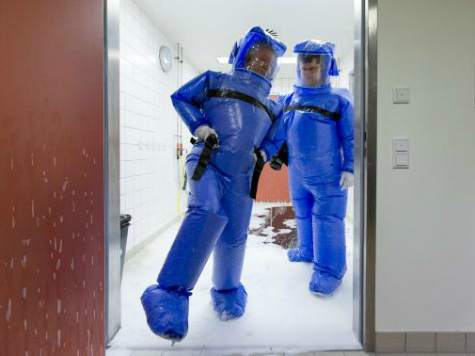News that the first case of Ebola in the U.S. had been identified and isolated in Dallas has caused widespread concern, given the severity of the disease and previous assurances by President Barack Obama himself that it was “unlikely” that Ebola would reach our shores. The Centers for Disease Control (CDC) will not recommend banning travel to or from affected countries in Africa, lest potential Ebola carriers simply “go underground.”
Here, however, are five other actions to be taken ASAP.
1. Make experimental serum ZMapp widely available. President Obama said that the new drug, made available to two U.S. aid workers who survived after contracting Ebola in Liberia, would not be provided to African countries. It is time to rethink that decision–and time to start having ZMapp doses ready in the U.S.
2. Route all travel from affected West African countries through one airport. While shutting down travel could make the outbreak harder to contain, temporarily confining such flights (or itineraries) to one landing site in the U.S., where testing and detection facilities could be built, would help stop new sick arrivals.
3. Make emergency hazmat kits available in public places throughout the U.S. Because Ebola is spread through contact with bodily fluids such as vomit or blood, hazmat kits should be available in airports and malls so that individuals who collapse (for any reason) can be handled without fear of transmission.
4. Insist that hospitals ask potential Ebola patients about their travel history. Though the CDC recommended that protocol, the hospital in Dallas evidently did not follow it properly, and reportedly sent the infected man home with antibiotics. In that time he may have come into contact with dozens more people.
5. Start describing the porous Mexican border as a public health threat. There is only a remote risk that Ebola would be carried across the border, but other diseases have already arrived. The CDC should not sit on the sidelines in the immigration reform debate, but instead advise Congress of ongoing health risks.

COMMENTS
Please let us know if you're having issues with commenting.